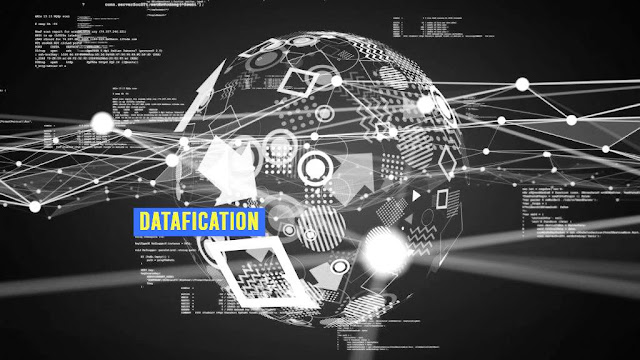Datafication refers to the process of collecting, analyzing, and utilizing data in various aspects of an organization's operations. It involves converting various types of information into a structured format that can be processed, analyzed, and utilized to gain insights and make informed decisions. Datafication has become increasingly important for organizations due to several reasons:
Business Intelligence and Decision Making:
Datafication provides organizations with valuable insights into their operations, customers, and market trends. By collecting and analyzing data, organizations can make data-driven decisions, identify opportunities, and respond to changing market conditions more effectively. It enables them to gain a competitive advantage by understanding their customers better, optimizing processes, and developing targeted strategies.
Improved Efficiency and Productivity:
Datafication allows organizations to monitor and measure various aspects of their operations, such as production processes, supply chains, and employee performance. By analyzing the data, organizations can identify bottlenecks, inefficiencies, and areas for improvement. This enables them to optimize their processes, reduce costs, and enhance overall productivity.
Enhanced Customer Experience:
Datafication enables organizations to gather and analyze customer data, including preferences, behavior patterns, and feedback. This information can be utilized to personalize and improve the customer experience, tailor marketing campaigns, and develop targeted products or services. By understanding customer needs and preferences, organizations can provide better customer service, increase customer satisfaction, and foster customer loyalty.
Innovation and New Opportunities:
Datafication provides organizations with the ability to uncover patterns, trends, and correlations within vast amounts of data. This can lead to the discovery of new business opportunities, innovative products or services, and market insights. By leveraging data analytics and advanced technologies like machine learning, organizations can identify emerging trends, predict future demand, and stay ahead of the competition.
Risk Management and Security:
Datafication enables organizations to monitor and analyze risks related to various aspects of their operations, including cybersecurity threats, fraud detection, and compliance. By continuously collecting and analyzing data, organizations can identify potential risks and take proactive measures to mitigate them. Datafication also plays a crucial role in ensuring data security and privacy, as organizations can implement measures to protect sensitive information and comply with data protection regulations.
Agility and Adaptability:
In today's fast-paced and dynamic business environment, organizations need to be agile and adaptable to stay competitive. Datafication provides organizations with real-time data and insights, enabling them to respond quickly to changing market conditions, customer demands, and emerging trends. By leveraging data analytics, organizations can make faster and more informed decisions, adjust strategies, and seize opportunities promptly.
In summary, datafication is important for organizations as it empowers them to gain insights, improve decision-making, enhance operational efficiency, deliver better customer experiences, drive innovation, manage risks, and stay agile in an increasingly data-driven world.

